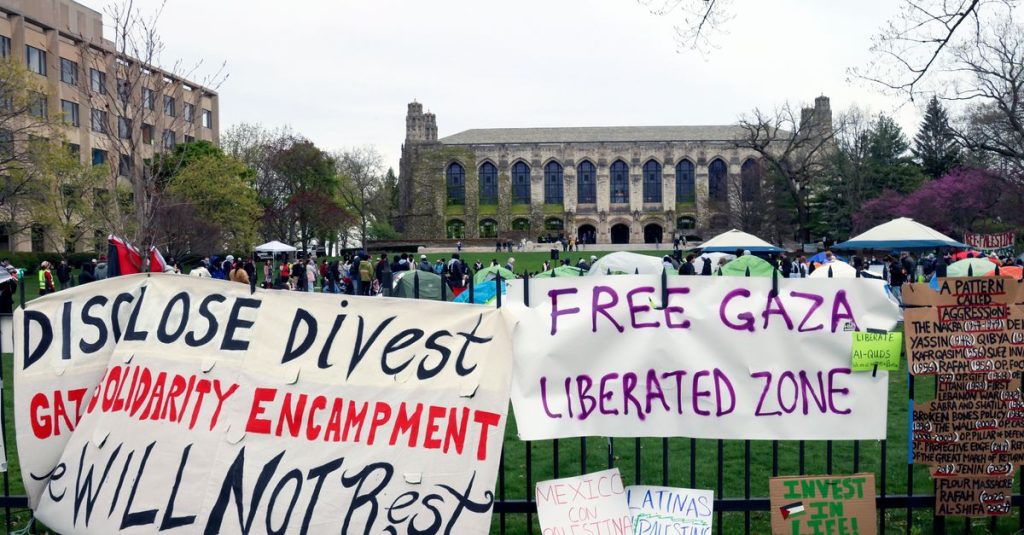Northwestern University and Brown University have both reached agreements with pro-Palestine protesters to end their occupation of campus grounds. The protests were in response to Israel’s attacks on Gaza, with many students urging their schools to divest from companies with Israeli ties. Northwestern officials reached a deal with antiwar demonstrators, allowing protests and pro-Palestine gatherings until the end of spring classes on June 1. The university also agreed to disclose its investments in businesses with Israeli connections, and the protesters agreed to leave just one aid tent on the lawn.
The Northwestern Divestment Coalition, a group supporting the protests, celebrated the victory as the university committed to full disclosure of its investments in companies supporting Israeli apartheid. This marks the first time a university administration has made such a commitment, and it is seen as a step towards divesting from these holdings. At Brown University, the Brown Divest Coalition also reached an agreement with the school to end their encampment on campus in exchange for a promise of a board vote in October on whether or not to divest from Israel-linked companies. The university also agreed not to retaliate against students and faculty involved in the protests.
Both universities stressed that students engaging in protected speech should not face punishment from non-campus actors such as employers. Brown University also committed to inviting five students chosen by the coalition for a meeting with school administrators to discuss the divestment proposal further. The Brown Divest Coalition stated that this victory is not the end of their work but rather a fuel to continue pushing for divestments in October and supporting protests across the country. They stand in solidarity with student protesters facing oppression and police brutality, as well as the people of Palestine enduring the Israeli occupation.
The protests at various universities across the U.S. have involved setting up encampments on campus grounds, demanding divestment from companies supporting Israeli actions in Gaza. Some demonstrations, like those at Columbia University, have faced police force, arrests, and school suspensions. The agreements reached at Northwestern and Brown signal a potential shift in how universities respond to student protests and calls for divestment. These agreements highlight the importance of free speech and peaceful protest on college campuses, as well as the power of student activism in influencing institutional decisions.
The agreements at Northwestern and Brown reflect a growing movement on college campuses to address issues of social justice, human rights, and international conflicts. Students have been using their voices and actions to bring attention to the situation in Gaza and pressure their schools to take a stand against Israeli actions. The commitment to transparency and potential divestment from companies linked to Israel show a willingness on the part of universities to listen to student concerns and potentially change their investment practices in response.
As the protests continue and more universities face demands for divestment, the agreements at Northwestern and Brown could serve as models for other schools on how to engage with student activists and address their concerns. The push for divestment from companies supporting Israeli actions in Gaza is part of a broader movement for social justice and human rights that is gaining momentum on college campuses. By reaching agreements with protesters, universities have the opportunity to align their values with those of their students and take meaningful steps towards supporting justice and peace in the Middle East.


